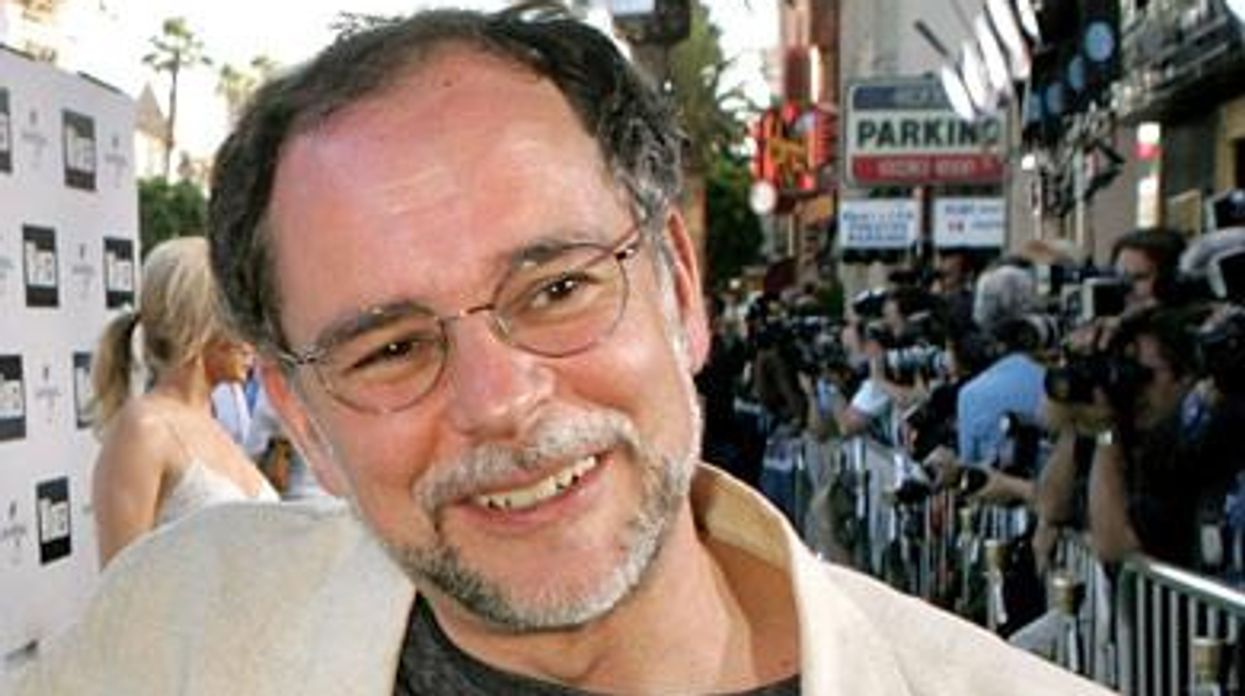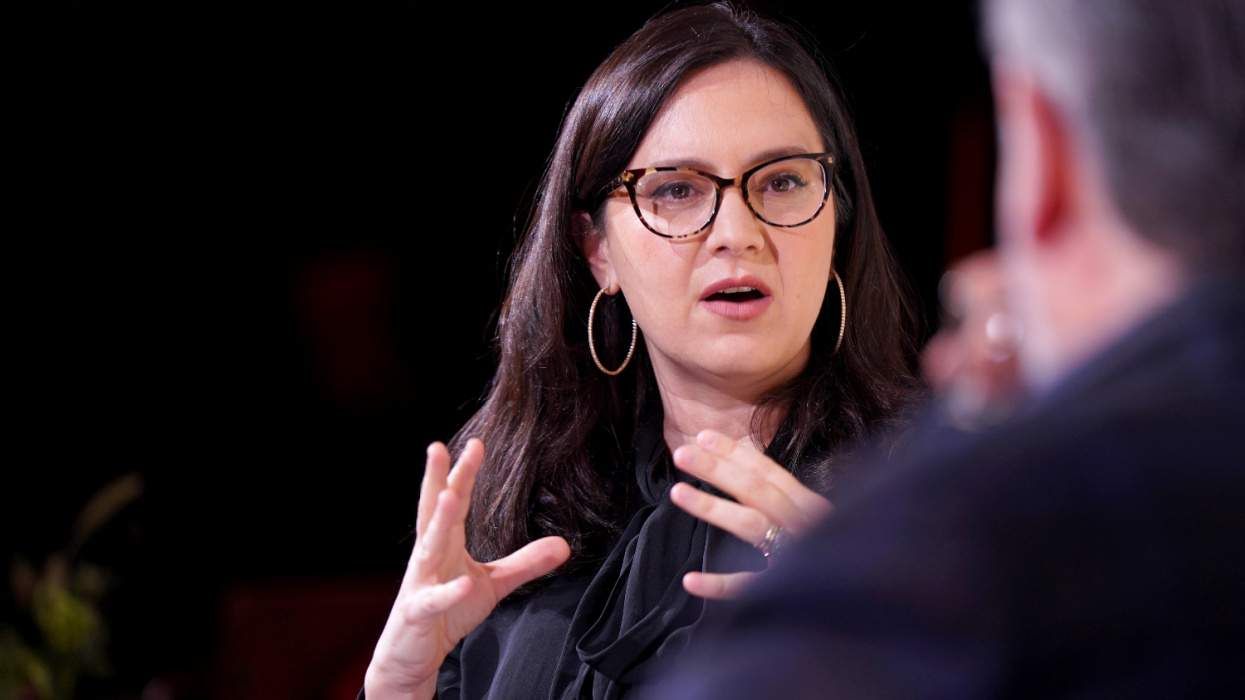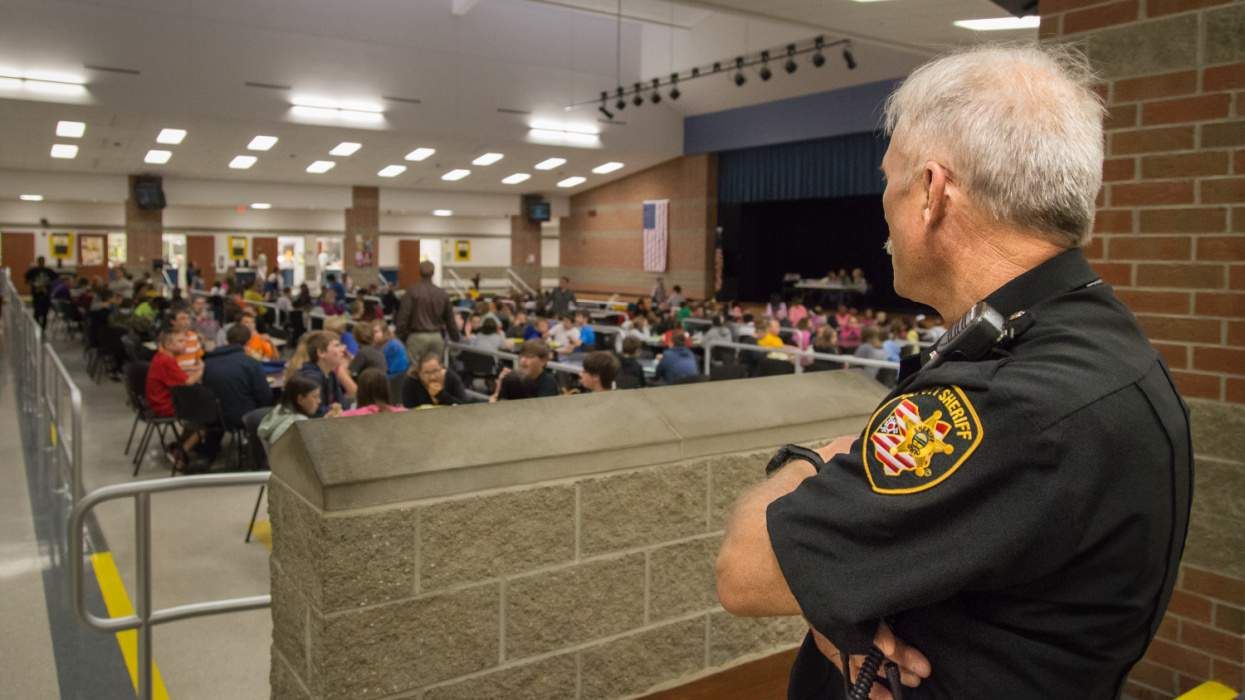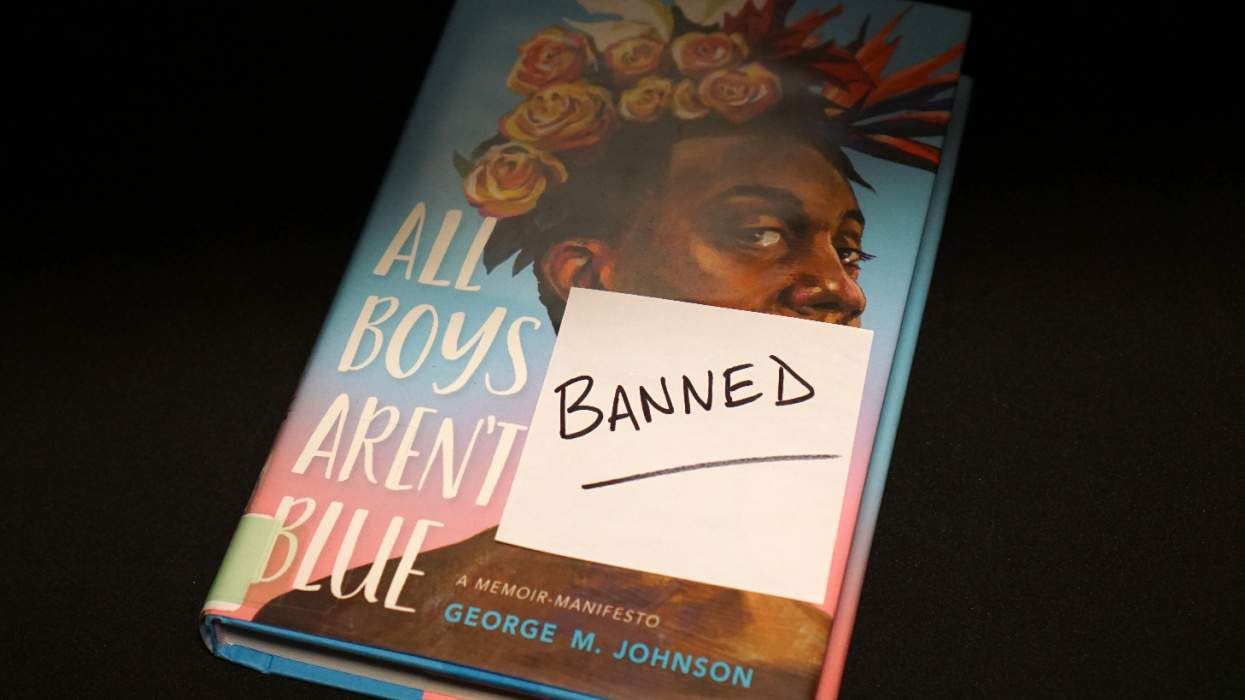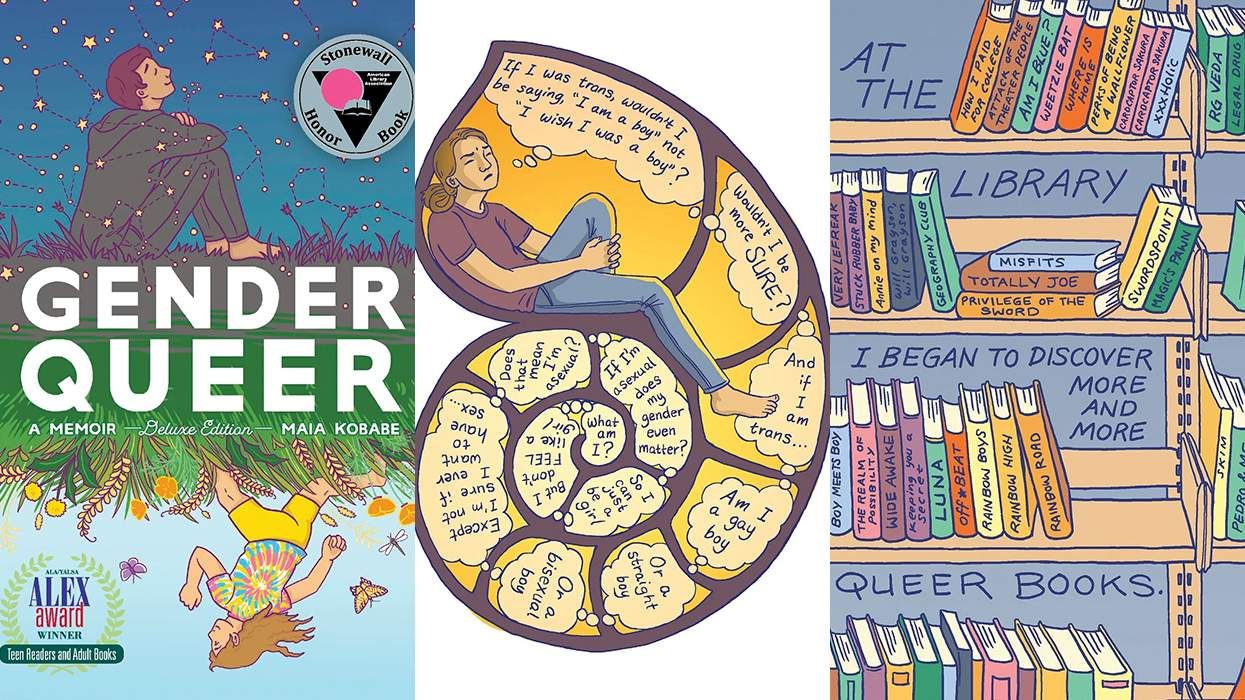Ever since Gregory Maguire published the novel Wicked: The Life and Times of the Wicked Witch of the West, millions of fans have enjoyed his skewed vision of the world of Oz. The hugely successful Broadway musical and two successive novels -- Son of a Witch and A Lion Among Men -- have only cemented the dedication of his fans. Here, he e-mailed with Advocate.com about gay characters, friends of Dorothy, and the veil he draws over some of his characters' hookups.
Advocate.com:Why do you think the Wicked books have drawn such an enthusiastic readership?Gregory Maguire: I confess that I write the kind of books I like to read. On the potentially risky side, that means the books are dense and sometimes obscure. On the plus side, I think that I put my richest interest in politics and personality into stories that have some degree of familiarity already (The Wizard of Oz). In addition, of course, Baum's original characters and their famous evocations by 1939's MGM film are so beloved and usefully complex that, as fleshed out in Wicked, they can become just that much more prickly, tender, and surprising.
Do you have a series of books plotted out based on the many hints you drop throughout the books -- or are they just part of the general mystique of the series? Both Wicked and its sequel, Son of a Witch, were meant to be stand-alone novels, but with A Lion Among Men I could see that there needed to be one (I think only one) more novel to complete the arc of the story. Some of my hints and cues suggest narrative twists in the future, but others are useful in order to continue to make sure that Oz seems just as rich, contradictory, and obscure as the complicated world in which we live. In other words, Oz is a place with hundreds of thousands of histories and interpretations, not just the novelist's privileged view.
You mentioned in an interview that you know a lot more about the story than ever makes it onto the pages. Can you give me an example? I hate to be coy, but I hate to be prurient, too. I believe in leaving some characters their veils of privacy. I will say that I know some characters who had romances or relations with each other about which I either only hinted or bypassed entirely, because to linger on such a subject would have given a false importance to the relationship.
What impact does your own sexual orientation have on the books and the world you've created? I think being gay is a useful precondition for turning into an artist, in that one has to learn through childhood to pay attention to other people's cues and behavior, because one's own system of references -- of affections, of interests, of interpretations -- seems to be awry compared to the norm. I think the practice of studying life for the purpose of self-protection makes a gay or lesbian person more curious and perhaps, if one is lucky, more astute. And that helps any artist.
Beyond that, though, gay people love the physical texture and resonance of the world, the social complexity of arcane relationships, and I have tried to bring my love of the physical world and my interest in social complexity to Oz. I have enjoyed choosing to write my magnum opus, as it were, in a magic land that, while famous, while popular, is not stuck in something that resembles the 13th century as tricked out by damsels in distress, swords and sorcery, cone-hatted magicians, and avaricious dragons. I like a magic world in which courage and affection and loyalty are just as strong as the powers of green and blonde witches and conniving wizards.
There are many gay connections with The Wizard of Oz -- the rainbow, Judy Garland and the "friends of Dorothy," the idea of making a family of choice, and so on. Is that one of the reasons why the source material resonated with you? I now know enough about this to accept that your assertion must be true, but I have to admit when I first head about "Friends of Dorothy" I really couldn't put it all together. I didn't know that the film The Wizard Of Oz had become a gay icon (though I did know about Judy Garland). I was a child reader and a lover of music and magic before I knew myself as a gay man, so in a sense I came to Oz in the pre-gendered condition of childhood reader.
In Son of a Witch, Liir fathers a child with Candle, as well as falls in love with Trism. Do you see him as a gay character? Liir was in a near-death state when Candle slept with him, as much to keep him alive -- as one might strip naked next to someone suffering hypothermia -- as, perhaps, to love him and attach herself to him. When he wakes up, though, he is affectionate -- what does he know of love and affection...what could anyone whose mother is the Wicked Witch of the West? So I do see him as a gay character -- he isn't remorseful over his night with Trism (though he can imagine Trism might be), but at the end of Son of a Witch he has just crossed over the threshold into adult life, and these questions -- his sexuality, how he might come to a description of his own nature -- are all ahead of him.
In A Lion Among Men, you address the question of what it means to be courageous. That seemed to also have gay resonance -- Brr is a dandy who's been rejected by his family, who has to go out into the world and figure out how to present himself. In Son of a Witch and Wicked and A Lion Among Men, courage is one of the recurring themes -- courage, and how to make yourself potent. Elphaba, a green witch, was potent as an iconoclast, a solo agent, a hermit. Her son, Liir, perhaps not so powerful, has to learn instead to be potent as a citizen (all his movement is away from isolation and toward collaboration). Brr, the Cowardly Lion, starts at an earlier position, needing the courage not to make himself potent in the world (he comes to learn perhaps, unlike Liir or Elphaba, that that may be a false ambition), but how to be potent to one's self -- how to love or accept himself. For Brr, the beginning of figuring out how to present himself to the world is to stop worrying about it and present himself to himself.
By placing Trism's liaison with Liir in the family tree, are you saying that it is as significant as any of the other relationships in the books? It is to me. But part of my larger perspective in writing the Oz novels is to present a fantasy world in which to be homosexual or lesbian isn't to be part of a gypsy underground, but to be an integrated part of the complex world of the story.
You've said that you think of Oz as a great metaphor for the United States. Will you ever address things like sexual politics, then? I hope that I have been doing that since the beginning, starting with the very first conversation between Elphaba's parents, Frex the minister and Melena the society woman with decayed morals, as they consider the relative powers and merits of their respective positions in society. But I write stories ultimately because the characters in their situations thrill and puzzle me, and I let the characters live as themselves, as much as my subconscious allows me to do, and I try not to harness them to do paid political advertising.
